Smooth internal communication is the key to the "magic" guests experience when entering a well-run hotel. When communication falters, bottlenecks arise, resulting in unhappy guests, dissatisfied staff and a subpar hotel experience. This is the opposite of a guest-centric operation.
To promote seamless operations and stop friction from happening, it’s important to implement technology to streamline your hotel’s processes, especially within the housekeeping department. Below, we'll explore why the housekeeping department is an especially crucial starting point.
Table of contents
The housekeeping department
The housekeeping department is at the heart of your hotel operations. They clean guest rooms, public areas and back-of-house spaces, ensuring rooms are ready for the next guests. They manage the washing, drying, and distribution of linens, bed sheets, towels and tablecloths. Housekeeping may also provide additional guest services such as turndown service, where they close curtains, turn down beds, replace towels and perhaps leave a mint or cookie on the bed. They also handle special requests for amenities like extra blankets, pillows or toiletries.
Organizational structure
The structure of the housekeeping department includes an Executive Housekeeper who oversees the entire operation, coordinating cleaning schedules, managing budgets and ensuring both cleanliness standards and guest satisfaction are met. They are also in charge of training and supervising staff as well as resolving any guest complaints.
Supporting the Executive Housekeepers are Assistant Housekeepers, who manage daily operations such as cleaning rooms and common areas and handling routine tasks. Also, there is a dedicated laundry staff responsible for the proper management of linens, towels, uniforms, and other items requiring laundering, as well as inventory control.

The main challenges in a housekeeping department
We've touched on the importance of communication in hotel operations but given the housekeeping department's need to manage numerous tasks under tight deadlines, miscommunication and misunderstandings can sometimes occur. Here are some of the main challenges a housekeeping department tends to face, as well as some technological solutions.
Inter-department communication
The traditionally turbulent relationship between front desk operations and the housekeeping department is too often the headline act and, as with any sibling rivalry, is rooted in the quality of communication between the two.
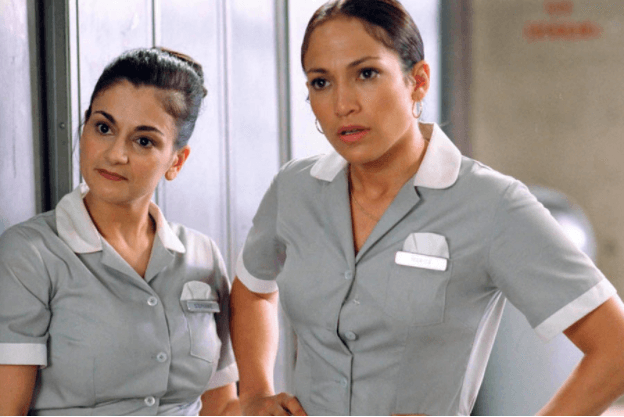
Understanding bottlenecks is important, and this has become increasingly easier with smart property management systems that enable useful software integrations. Dynamic planning, real-time status updates and instant communication can lead to unprecedented cost management for a hotel, as well as reduce conflicts between departments.
For instance, when a guest checks out, housekeeping can be automatically notified via a smartphone or device, eliminating the need to wait for manual updates at reception before preparing the room for the next guest.
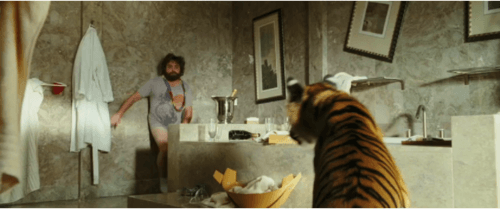
Lag time
There is often a significant wait period between when a room is ready and when a guest can check in.
Traditionally, interfaces between property management systems and telephone systems meant housekeepers had to dial codes on handsets to notify reception when rooms are ready. However, with modern technology like facial recognition and mobile solutions, the future of hotel housekeeping management lies in leveraging mobile technology to streamline operations, reduce resource use and enhance the guest experience. In essence, adopting mobile technology can streamline operations, reduce resource use and enhance the guest experience.
Staffing issues
Housekeeping is one of the departments with the highest turnover rate, leading to constant training of new staff and often staffing shortages. This can stress team members who are spread thin. Continuous training helps address these issues. By regularly training your staff and identifying areas for improvement, you demonstrate an investment in your team. The more you invest in your staff, the more committed they will be to your hotel, leading to lower turnover rates. Using an e-learning platform like Mews University gives your staff the freedom to learn on their schedule, anytime, anywhere.
Clipboards
Clipboards can cause errors such as cleaning the wrong rooms and an inability to communicate during emergencies. Clipboards should be relics of the past. Although hand-holding is important for the transition to digital, hospitality software companies need to build solutions for housekeepers that don’t require days of training and are affordable for even the smallest of operators.
In addition to helping hotels increase productivity, mobile solutions can aid in the elimination of paper waste created by the multiple printouts in many housekeeping departments. The digitizing of data also makes it easier for managers to compile and pull reports in real time for overall operations status.
With the rise of disruptive platforms like Airbnb, new formats of hospitality are emerging, consisting of clusters of apartments across multiple locations that still need to be managed like a traditional hotel. Mobile technology will be crucial for future-proofing hotel housekeeping operations as accommodation becomes more complex and disparate.
The drawbacks of adopting such a system? There is an academic argument to be made that, had a cloud-based housekeeping app been integrated into the operations of the fictional Beresford Hotel in the romantic comedy Maid in Manhattan, then Jennifer Lopez may well have been alerted to the presence of a room guest and would never have met Ralph Fiennes and lived happily ever after...but that aside, the future of hotel housekeeping software appears mobile and cloud based.

The future of hotel housekeeping technology lies in mobile apps
Housekeeping is, arguably, the most inefficient operation in any hotel. Amidst a labyrinth of rooms with enigmatic guests slipping in and out, clipboards and printed reports are too often the only compass housekeepers have to navigate through their daily chores and find the next room to clean.
Shockingly, most hotels still use walkie-talkies to communicate between the front officero and housekeeping. However, with the technology now available, housekeepers could use smartphones, potentially their own, to log into the PMS and check which rooms are ready to be cleaned, change the status of the room when they are cleaned and inspected, or even check the guest’s name before knocking on the door. Hotels need to rely on their system and know that when a room is inspected, it will instantly be reported to the front desk. Increased availability allows receptionists to move bookings around faster without interrupting housekeeping workflows with constant re-prioritizations.
10 technologies that are revolutionizing the housekeeping department
Technology has long been deemed the go-to solution for hotels to increase efficiency across departments. It streamlines operations, reduces costs, and provides a hotel environment designed to impress and leave a lasting impression on guests. Let’s look at ten solutions revolutionizing the housekeeping department.
1. Mobile Apps for Housekeeping Management
Housekeeping is often the most inefficient operation in a hotel. Mobile technology can help housekeepers log into the PMS, check which rooms are ready to be cleaned, change the status of rooms when they are cleaned and inspected, and check the guest’s name before knocking on the door. This increases efficiency and reduces interruptions in housekeeping workflows.
2. Mobile App – Type 1: Task/Rota Management
Mobile hotel housekeeping has developed through task/rota management and list-based solutions like RoomChecking and Optii. These tools automate task assignments and scheduling based on real-time room status and staff availability, improving efficiency and ensuring timely completion of tasks.
3. Mobile App – Type 2: Behavioral Management Solutions
Behavioral management solutions, such as HotelKit, offer integrated communication systems akin to "Slack-for-hotels." These platforms allow hotel operations teams to assign tasks and schedule assignments quickly and proactively through a mobile app, enhancing coordination and responsiveness within the team.
4. Housekeeping software integrated into your PMS
A PMS like Mews that has integrated housekeeping software is ideal for boosting productivity, reducing costs, and improving the guest experience. This on-the-go software allows you to manage room turnovers, workloads, room assignments, daily cleaning, and maintenance tasks. It streamlines communications with in-app updates, making it effortless for staff to complete their jobs efficiently.
5. Digital checklists
Digital checklists integrated into your PMS housekeeping software can help staff remain accountable for their tasks, tracking what has been completed and what still needs to be done. This ensures compliance, provides the front desk with better estimates for room readiness, and helps manage maintenance tasks or guest requests more efficiently.
6. Automated Robotic Cleaning Machines
Robots are revolutionizing hotel housekeeping. The TASKI Intellibot range of commercial robotic cleaning machines from Diversey Care allows hotel staff to focus on other revenue-generating and value-added tasks. While not designed for the intricacies of room cleaning, they excel in large spaces with fewer obstacles. Discover more on how hotel robots are transforming hospitality.
7. Ultraviolet disinfection
In the years that have followed since Covid-19, guests have become more demanding about hygiene standards. Introducing UV-C light technology can disinfect surfaces by destroying bacteria and viruses. This chemical-free solution not only helps reduce the spread of infections but is also ideal for sanitation purposes.
8. Artificial intelligence
Artificial intelligence and machine learning should not be overlooked when it comes to better analyzing data, predicting maintenance needs, and optimizing staffing forecasting based on demand. By using AI, predictive modeling is more accurate, and you can process large amounts of past data that would be time-consuming otherwise. See some of the other ways AI is already shaping hospitality.
9. RFID technology
RFID tags can be used to track linens, inventory, and uniforms more effectively, reducing losses and theft while improving overall inventory management. Accurate inventory control minimizes revenue loss due to unaccounted items.
10. Housekeeping cart
A housekeeper’s cart is their de facto office. A well-organized and well-stocked housekeeping cart is key to efficiency, enabling room attendants to avoid wasting time looking for a cleaning item or making trips back to the linen room for more supplies. The specific amounts of items loaded onto a cart vary according to the types of rooms being cleaned, the amenities offered by the property and the size of the cart itself. Traditionally spacious enough to carry all supplies needed for a half-day’s room assignments, many hotels are now replacing cumbersome carts with smaller, electric models akin to golf caddie bags which are praised for their convenience, efficiency, and unobtrusive appearance.

Embrace the potential of hotel housekeeping technology through training
Yet, as when implementing any new technology, training is key. “Embracing technology in housekeeping is a significantly longer journey than for any department. It’s important that you appoint someone who specifically champions this new culture and who is in charge of the results. Someone who is not afraid of technology and driving change,” says our very own CEO, Matthijs Welle.
For example, the Activity report within Mews is the perfect way to show exactly when rooms are returned as 'clean' back to reception. Although housekeepers usually start at 8 AM, the reports often indicate that most rooms are only returned to operations around 3-4 PM. This coincides with the time when cleaners finish their shifts and hand in a sheet of paper with the rooms they have inspected.
This delay raises the question: if housekeepers start so early, why are rooms not inspected sooner? The problem lies in the lack of access to the Mews mobile app by the housekeepers, which is due to insufficient staff training. The technical solutions exist, but they are not always utilized effectively. At Mews, we must assist hotels in transitioning to this new mobile technology.
“We find that, in hotels where the Mews app is actively used, guests check in significantly earlier,” Matthijs continues.
Download our guide "The guide to switching your PMS"

Moving to a more modern housekeeping system might mean moving your PMS. If that's the case, there are plenty of things to consider.
Our Guide to Switching Your PMS covers all the most important questions you might have, from what to ask your potential new providers to what a typical onboarding timeline looks like.
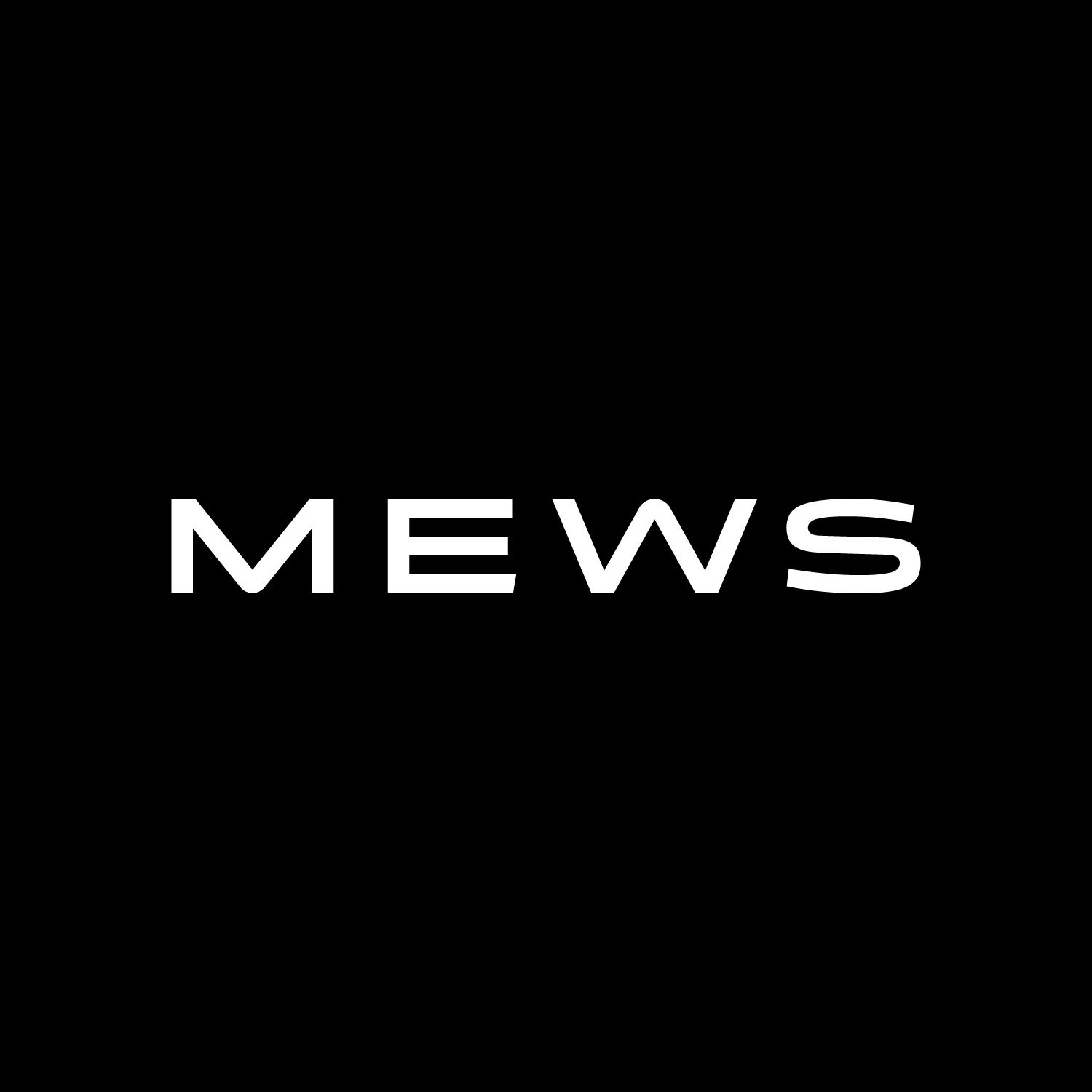

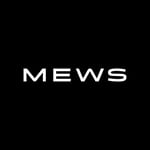
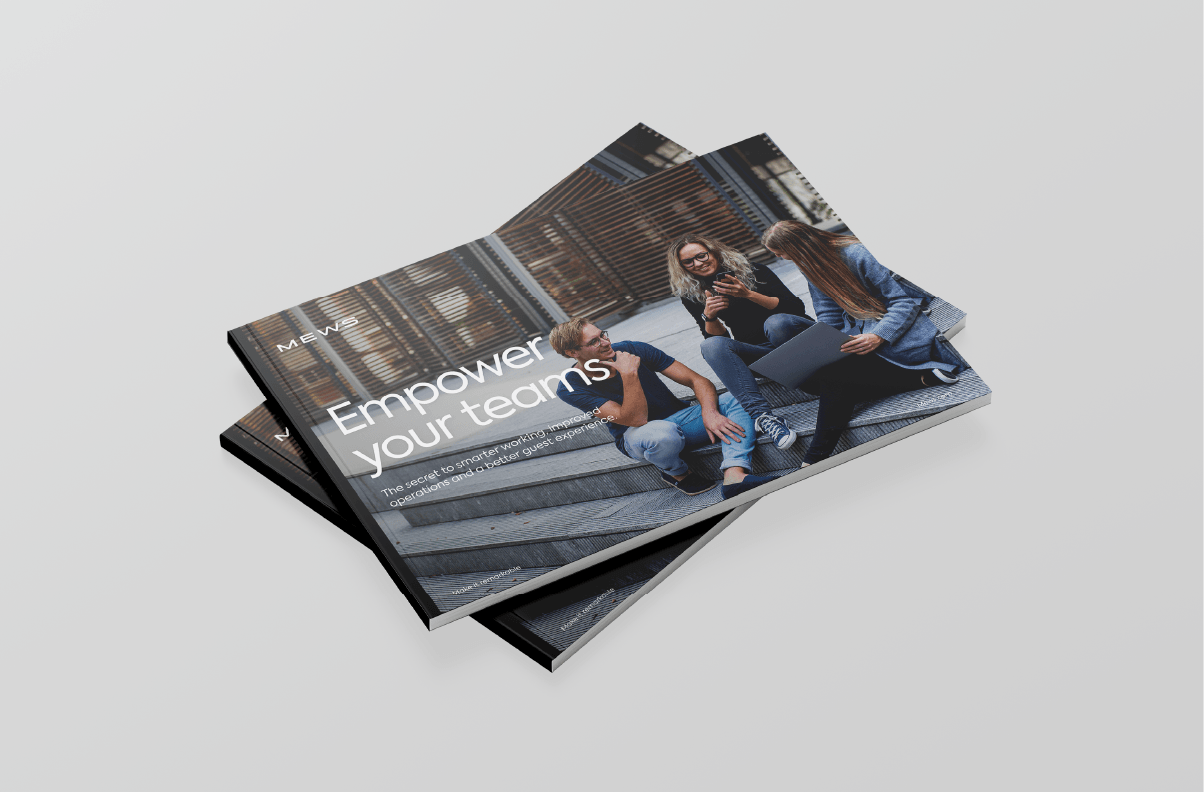
.webp)